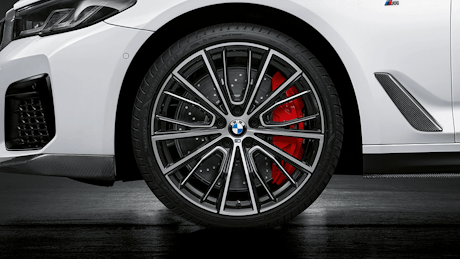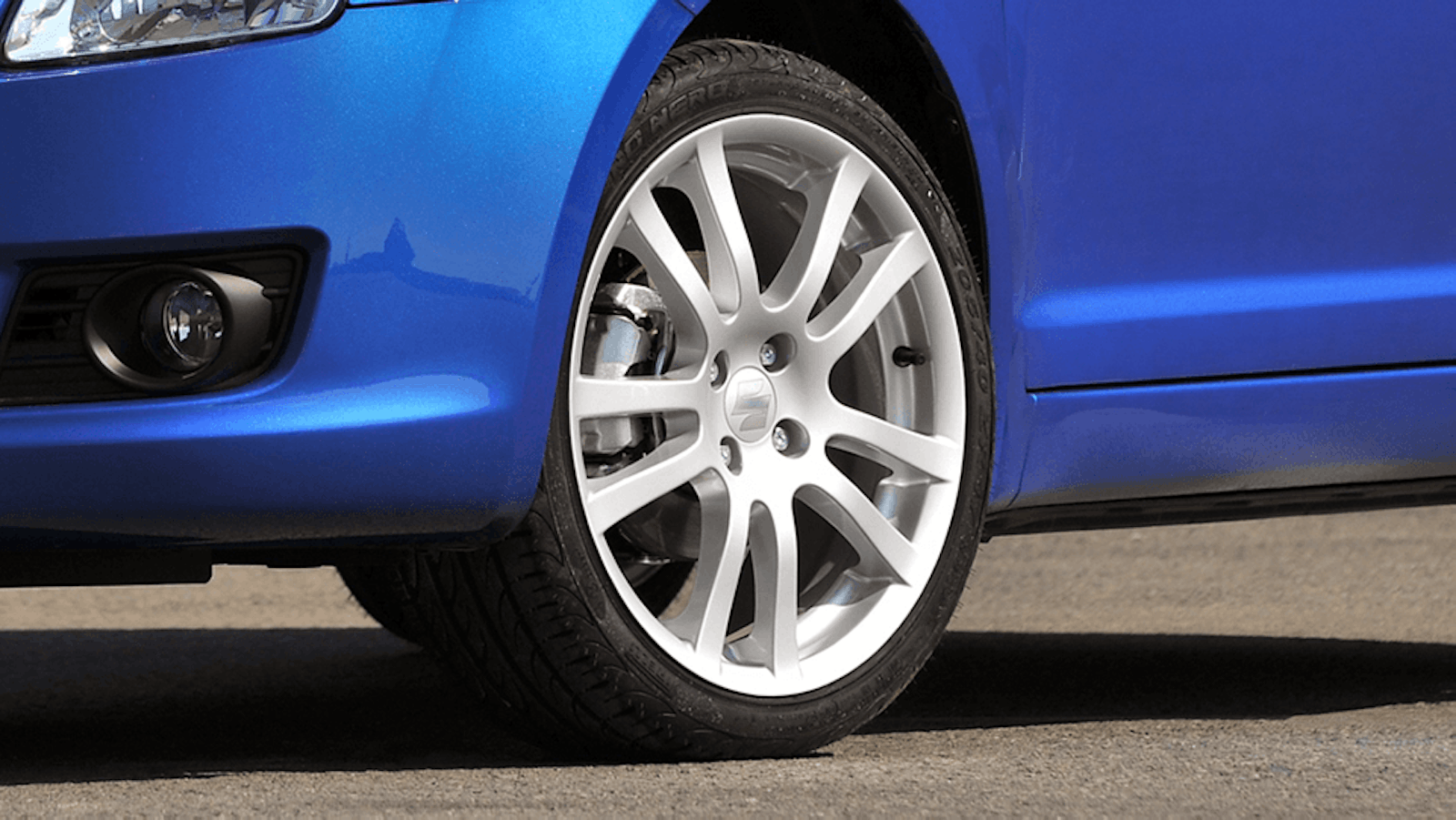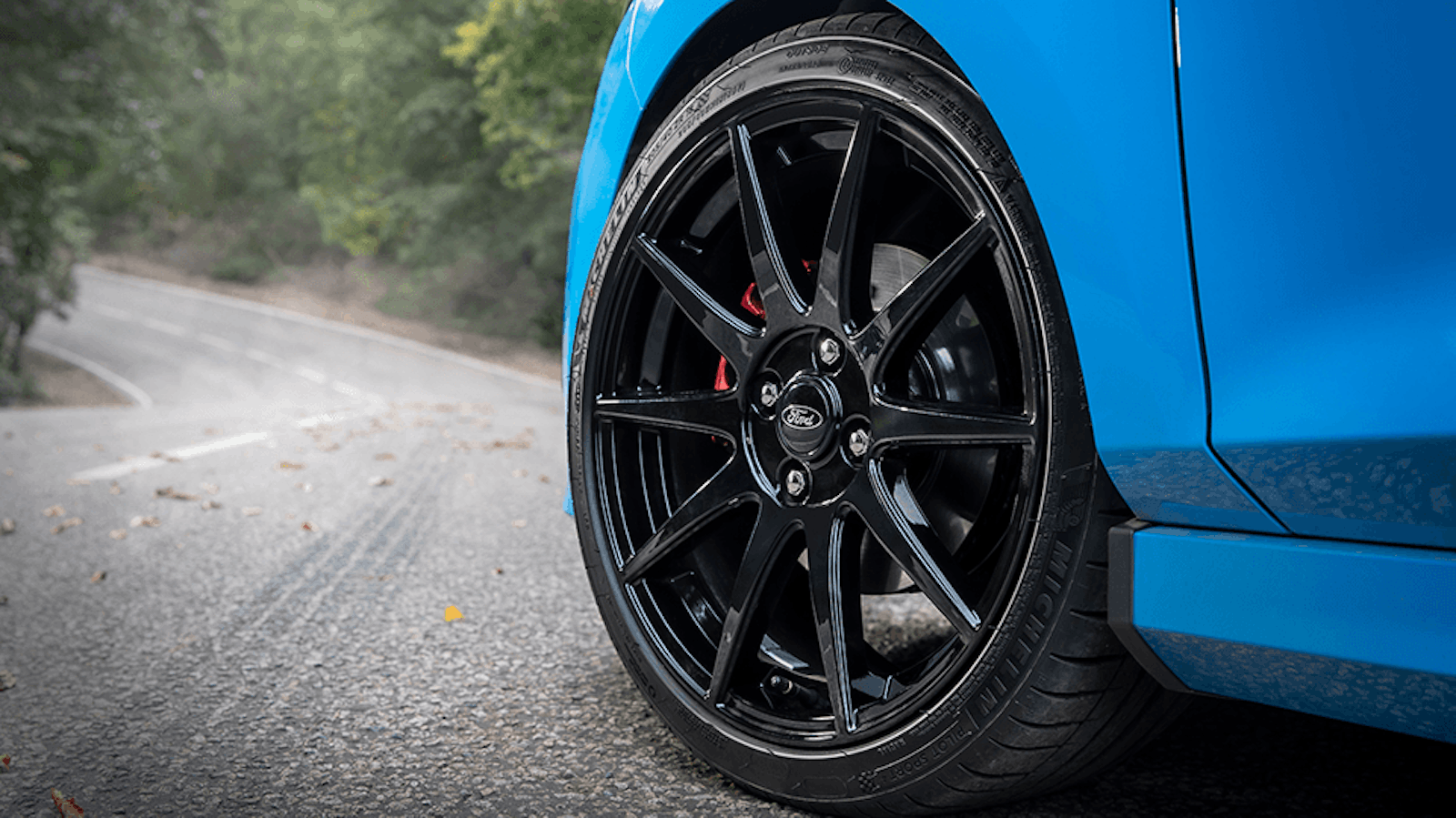Should you buy a car with big alloy wheels?
March 03, 2022 by Ryan Hirons

Alloy wheels were once the reserve of luxury cars and the aftermarket, but now the vast majority of new cars will come with them.
Several cars have a selection of ever-larger wheels to pick from too, but are they worth stumping up the cash for? This guide is here to explain.
What is an alloy wheel?
An alloy wheel is a wheel made of a mixture of metals, typically aluminium or magnesium.

They’re also typically pressed as single-piece units in unique shapes.
This differs from cheaper steel wheels, which are usually just a simple circular pattern, with plastic wheel trims tied on. Steel wheels are more prone to bending out of shape, meaning a simple construction is needed to help them maintain their structural integrity.
What are the benefits of big alloy wheels?
They look cool
Most people opt for massive alloy wheels on the basis of them simply looking cool. It’s hard to argue with that.
They help resale values
Because larger alloy wheels tend to be more desirable, cars fitted with them can often command a higher price when the time comes to sell them.
Big alloys help with handling (to an extent)
Cars with bigger alloy wheels usually have a thinner tyre as a result. This means less flex in the sidewall, allowing for more grip under heavy cornering. However, this does come at a trade-off…

What are the disadvantages of big alloy wheels?
Bigger alloys tend to be heavier
Bigger alloys will typically add more of what’s referred to as unsprung mass on each corner of the car. This ‘mass’ refers to the weight of the alloys themselves, tyres and a few other components. Unlike other parts of a car, these are not supported by the car’s suspension – they rest directly on the road instead.
More unsprung mass means your suspension has to work even harder to keep your wheels on the ground. This will make it tougher for a car to regain grip over bumps, and ultimately worsen its handling.
Ride comfort will be reduced
Thinner tyres mean you’ll have a little less cushioning over bumps in the road. Those extra forces will come through to the car, and ultimately make it less comfortable.
You need to be more conscious of kerbs
Big alloy wheels may look good when new, but less so if you’ve scuffed them up a bit. It’s without a doubt easier to kerb bigger alloy wheels, so you’ll need to be a little more careful when parking.

Is it worth buying a car with big alloy wheels?
In essence, whether or not you should go for a car with big alloy wheels will come down to your preference on style or comfort.
You should buy a car with big alloy wheels if:
- Style is your main concern
- You’re keen to retain as much resale value as possible
- You’re planning to drive on a lot of smooth racetracks
You shouldn’t buy a car with big alloy wheels if:
- Comfort is your main concern
- You’re prone to kerbing wheels
- You’re surrounded by bumpy, countryside roads
Cars Change? Carwow!
Looking for a new set of wheels? With Carwow you can sell your car quickly and for a fair price – as well as find great offers on your next one. Whether you’re looking to buy a car brand new, are after something used or you want to explore car leasing options, Carwow is your one stop shop for new car deals.















